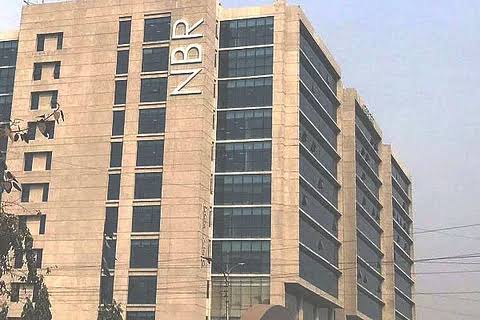12/01/2025

‘Fear of reprisals’, ‘anxiety’ grip NBR staff
Staff Correspondent | Published: 2025-07-06 09:33:15

The National Board of Revenue (NBR) staff have returned to work after withdrawing their demand for the chairman’s removal, but employees say they are gripped by “fear” of dismissal, compulsory retirement and transfers.
They say they want assurances that “what’s done is done, and no punitive action will follow”.
Despite resuming duties, many admit they remain too unsettled to focus fully on their jobs.
Business leaders, who helped mediate an end to the “complete shutdown”, described the prevailing atmosphere as “unfortunate”.
Former Federation of Bangladesh Chambers of Commerce and Industry (FBCCI) president Mir Nasir Hossain said they held multiple meetings with protest leaders before sitting with the Finance Advisor Salehuddin Ahmed and NBR chairman, where employees agreed to call off the strike.
Nasir said they urged the interim government to refrain from taking immediate action against staff involved in the protest to avoid the perception that they were being punished for dissent.
Any wrongdoing, he added, should be handled carefully through proper legal steps.
“But that has not been honoured,” Nasir said. “We are very disappointed.”
He confirmed that business leaders have now requested a fresh meeting with the finance advisor to raise these concerns again, though the government offices are closed for three days.
Mahmud Hasan Khan, the newly elected president of the Bangladesh Garment Manufacturers and Exporters Association (BGMEA), echoed the concerns.
He said informal discussions were held with the finance advisor and the NBR chief, warning that continued action against officials would “demoralise” the entire workforce.
Mahmud added that International Chamber of Commerce, Bangladesh (ICCB) President Mahbubur Rahman had also reached out to the advisor, conveying that the situation could have wider consequences if not resolved.
“If this continues, it will affect everyone.”
The BGMEA chief argued that any specific allegations should be investigated, but not rushed.
He said there is hope that talks with the advisor might help calm the situation.
He noted that a letter was being prepared for the advisor, expressing “concern” over the fear spreading among officials.
The protests began in June under the banner of NBR Reform Unity Council, demanding the removal of the chairman.
It followed a May government ordinance splitting the agency into two separate divisions -- Revenue Administration and Revenue Policy -- which staff resisted through a series of protests, including a pen-down strike.
On May 22, the caretaker administration issued a statement saying the order would be revised, and that NBR would continue to operate under the existing structure in the meantime.
But with the movement continuing, a second announcement followed on May 25, clarifying that the NBR would not be dissolved but upgraded to an “independent and specialised” department by Jul 31.
Despite the assurance, protests intensified. The chairman was declared “unwelcome” at the office by agitating staff, and on Jun 18, the NBR operations, including import-export processing, came to a halt as employees launched a “complete shutdown” programme.
On Jun 29, with disruption persisting, the interim government classified the NBR services as “essential” and ordered an immediate return to work, warning of legal action against any activity deemed unlawful or against national interest.
A five-strong advisory panel was also formed to resolve the crisis.
That evening, Advisor Salehuddin met leaders of major business bodies.
Following those talks, and based on what business leaders called “positive signals”, NBR Reform Unity Council agreed to call off the shutdown.
But soon after, the Anti-Corruption Commission (ACC) began enquiries into 16 officials who had led the protest.
The move drew sharp criticism from academics, including Dhaka University’s Asif Mohammad Shahan, who warned on Facebook that targeting protest leaders under the guise of anti-corruption could signal “a misuse of state institutions to silence dissent”.
He said while investigating public officials was legitimate, using the ACC selectively raised serious concerns.
“If the government uses these agencies to crush opposing views,” he wrote, “then clearly we haven’t changed at all.”
One senior protest leader, speaking on condition of anonymity, said that the current uncertainty is “undermining” revenue collection.
“If you don’t have trust in the system, it becomes hard to deliver,” he said.
He described the mood across all levels of the agency as “anxious and low”.
“You could say there’s a cloud of fear over us,” he said. “This is a serious problem. The sooner we believe that nothing more will happen, the sooner we can get back to our work.”
Repeated calls to the NBR chairman and the finance advisor for comment went unanswered.
Energy Advisor Fouzul Kabir Khan, the head of the advisory committee, also could not be reached.
Editor & Publisher : Md. Motiur Rahman
Pritam-Zaman Tower, Level 03, Suite No: 401/A, 37/2 Bir Protik Gazi Dastagir Road, Purana Palton, Dhaka-1000
Cell : (+88) 01706 666 716, (+88) 01711 145 898, Phone: +88 02-41051180-81